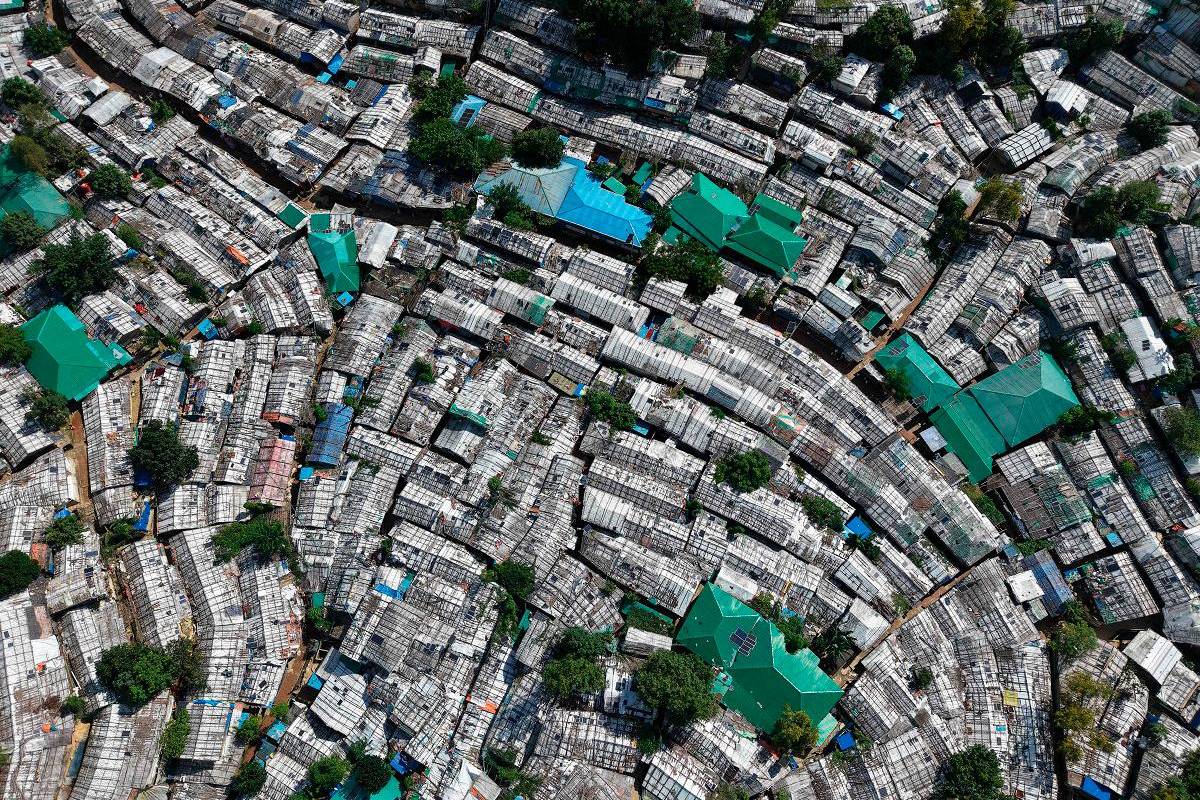DHAKA: Mohammad Kaisar fled Myanmar’s Maungdaw township barefoot and exhausted with his family during relentless rain eight years ago.
He crossed the Naf River on a flimsy boat to reach Bangladesh alongside approximately one million fellow Rohingya Muslims escaping military persecution.
The 28-year-old refugee now lives in a simple shelter within Cox’s Bazar’s sprawling camps where despair remains unchanged despite the passing years.
“War is raging. Hundreds are waiting at the border to enter Bangladesh. Every day, a new family from Rakhine takes refuge,“ Kaisar told AFP by telephone, speaking outside his cramped hut in Balukhali camp.
“How is it possible to return home? We were destined to stay in this crowded camp, sandwiched between small huts.”
Bangladesh is currently holding talks in Cox’s Bazar to address the Rohingya refugee crisis amid continuing arrivals from conflict-torn Myanmar.
These discussions precede a United Nations conference scheduled for September 30 in New York focused on finding sustainable solutions.
Both Bangladesh and the UN aim to establish stable conditions in Myanmar to enable eventual voluntary returns despite ongoing challenges.
Nicholas Koumjian, who heads the UN’s Independent Investigative Mechanism for Myanmar, emphasised the necessity of safety for returns.
“I consistently hear from Rohingya refugees that they want to return to their homes in Myanmar, but only when it is safe to do so,“ he warned ahead of the meeting.
“Ending the violence and atrocities against civilians from all communities in Rakhine is critical for the eventual safe, dignified, voluntary and sustainable return of those that have been displaced.”
Rakhine state remains engulfed in intense fighting following Myanmar’s 2021 military coup that triggered widespread civil conflict.
Bangladesh has documented approximately 150,000 additional Rohingya arrivals since early 2024 as violence continues displacing communities.
Kaisar remembers his previous life in Myanmar operating a small grocery shop from his spacious family home.
His current existence involves constant survival struggles within camps where safety remains fragile and factional clashes occur regularly.
“We had two armed groups fighting only a few months ago. It was like a hostage situation,“ he said.
“Violence is common; children are the most vulnerable.”
Humanitarian conditions have worsened due to fighting in Rakhine and international aid reductions influenced by US funding freezes.
The World Food Programme reported that 57% of families in central Rakhine cannot meet basic food needs following donation cuts.
Refugees in Bangladesh camps receive monthly ration cards valued at around $12 providing limited nutritional support.
“It fills our stomachs, but there is no nutrition,“ Kaisar explained regarding the standard allocation of 13 kilograms of rice, one litre of oil, and basic seasonings.
“I have a three-year-old son. He needs milk, eggs and lentils, but we cannot afford them. Nutrition centres in the camps provide support to children under two. After that, we are left to struggle.”
Educational limitations represent another significant concern for Rohingya families fearing generational refugee cycles.
“Will he be able to study and get a job? Or will he spend his whole life as a refugee like me?” Kaisar asked about his young son’s future.
He acknowledges initial Bangladeshi villager generosity following his escape but sees limited long-term prospects for his community.
Rohingya militants allegedly collaborating with Myanmar’s junta have attempted recruiting refugees according to camp residents and UN reports.
“We civilians have been continuously betrayed,“ Kaisar said bitterly. “Every side has used us as pawns.”
The father’s current appeal focuses on educational access allowing Rohingya children to attend regular Bangladeshi schools.
“At least allow our children to attend school,“ he pleaded. “If they can stand on their own, maybe their future won’t be as hopeless as ours.” – AFP






